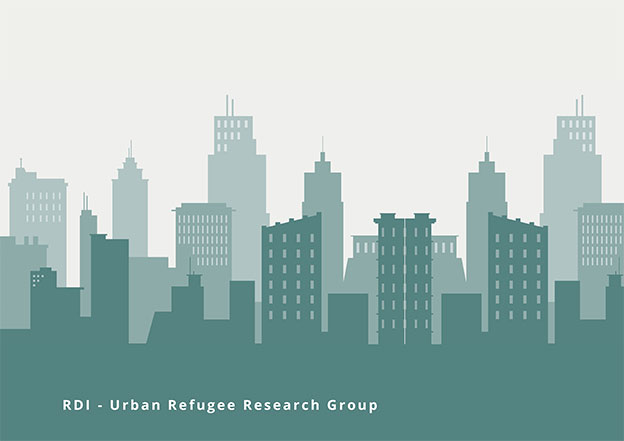Contact event manager
Book your tickets
Refugee Management Stakeholder Mapping Workshop
Youtube Live, ZOOM
All Day
January 30, 2021
000000
Urban Refugee Research Group
Organizer's other eventsRefugee Management Stakeholder Mapping Workshop

Background
The influx of refugees into countries and cities is an emerging global issue. In 2018, there are more than 70.8 million possibly displaced people worldwide. Asia and the Pacific alone hosts some 4.2 million refugees, 2.7 million IDPs, and 1.6 million stateless persons. Of this number, two-thirds live in urban areas. The roles of cities in migration management are also acknowledged in the 2016 New Urban Agenda, the 2018 Global Compact for Migration (GCM), and Global Compact on Refugees (GCR). This includes recognition of the need of supporting local authorities, finding new mechanisms for regional engagement, and identifying new ways of working between humanitarian and development actors. With future risks of more displaced people due to conflicts, climate crisis, as well as economic crisis precipitated by the COVID-19 pandemic, there is an urgency to gain a better understanding of the refugee issues.
Since Indonesia has not ratified the 1951 Refugee Convention and its 1967 Protocol, refugees and asylum seekers cannot settle permanently. Nevertheless, Indonesia and other ASEAN countries such as Malaysia and Thailand, abide by the principle of non-refoulment. Refugees in Indonesia live dispersedly across several locations in Indonesia. For instance, Greater Jakarta, Medan, Bogor, Makassar, and Pekanbaru are each home to more than 1,000 urban refugees, while the remaining refugees are scattered in other areas such as Kupang, Lombok, and Aceh. Municipalities and regions in Indonesia are facing different challenges and are equipped with limited experience and capacity in handling refugees. As a result, each municipality or region applies different mechanisms in handling refugees, which might also involve different sets of stakeholders.
Objectives
RDI organized a workshop to discuss the existing roles of various stakeholders and to collectively identify the gaps and challenges that emerged in Indonesia. The objective was to bring along multidisciplinary perspectives in analyzing gaps of roles in refugee management at the municipal level in Indonesia. The workshop was expected to lay the foundation of collaboration among refugee researchers to encourage robust research on refugee-in-transit that can be useful for refugee management policies.
Participants
In total, 14 participants from different organizations attended the workshop. Most participants are researchers or practitioners who are familiar with refugee management dynamics and situations at the national level and/or at each municipality. Participants were invited individually, not representing their respective institutions. In general, their professions are university lecturers, researchers, NGOs, and CSOs workers. The variety of expertise is around migration and media studies, international relations, law, social studies, economic geographer, anthropology, community development, and urban planning.
Note: This event was for Invitation only
Download our event reports here: Download Now





